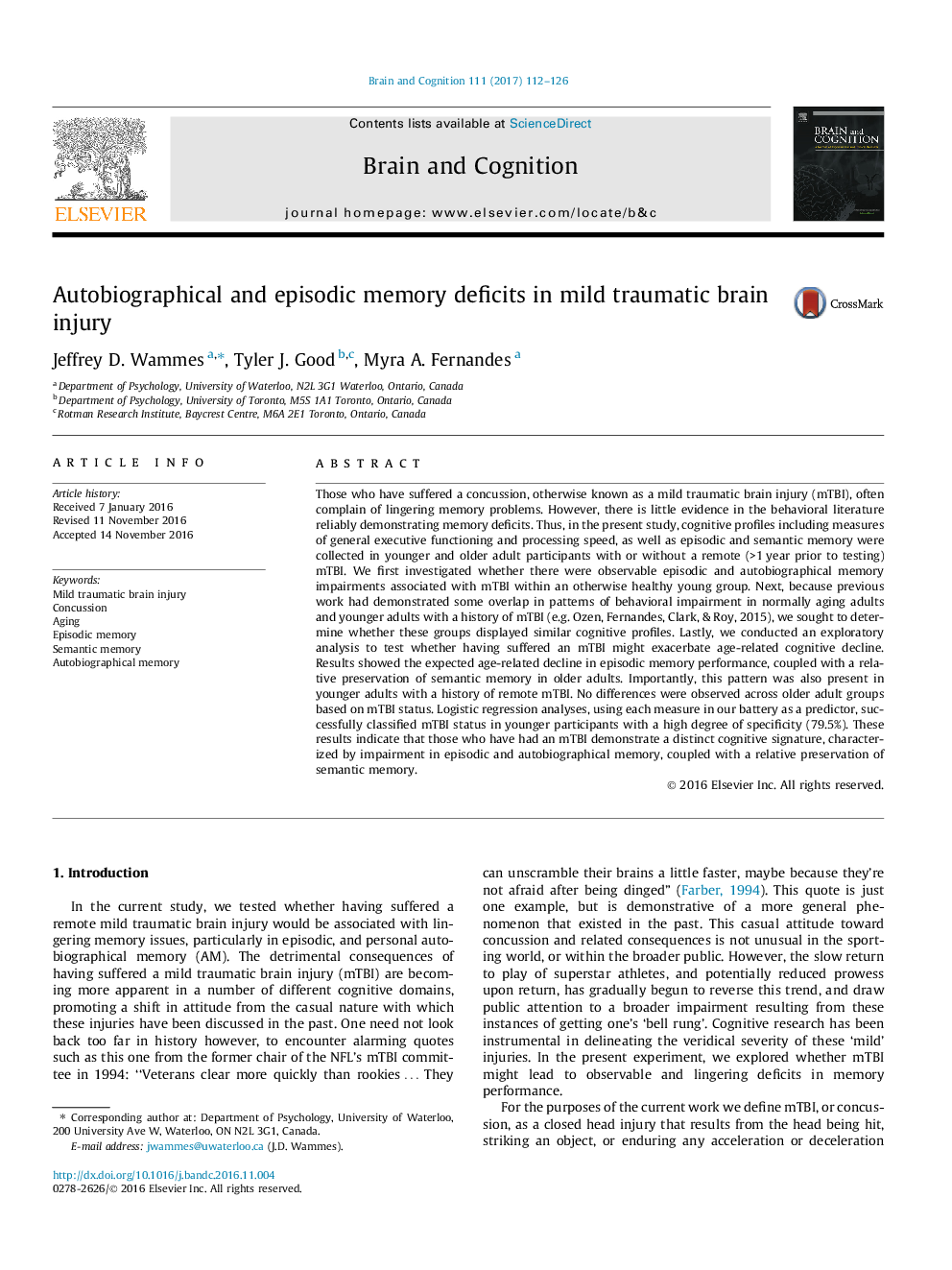ترجمه فارسی عنوان مقاله
اختلال حافظه ی خودآزاری و اپیزودیک در آسیب مغزی ضعیف خفیف
عنوان انگلیسی
Autobiographical and episodic memory deficits in mild traumatic brain injury
| کد مقاله | سال انتشار | تعداد صفحات مقاله انگلیسی |
|---|---|---|
| 119387 | 2017 | 15 صفحه PDF |
منبع

Publisher : Elsevier - Science Direct (الزویر - ساینس دایرکت)
Journal : Brain and Cognition, Volume 111, February 2017, Pages 112-126

